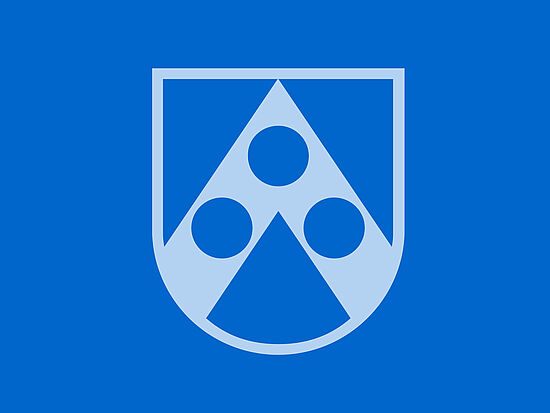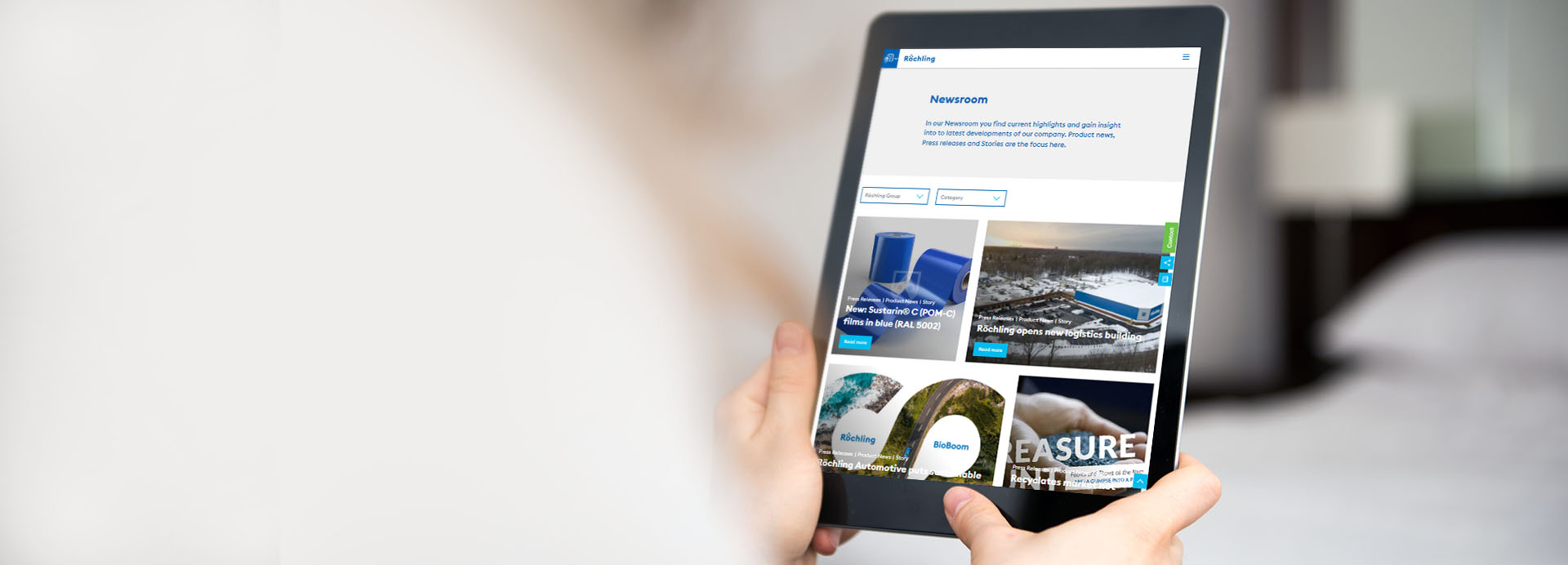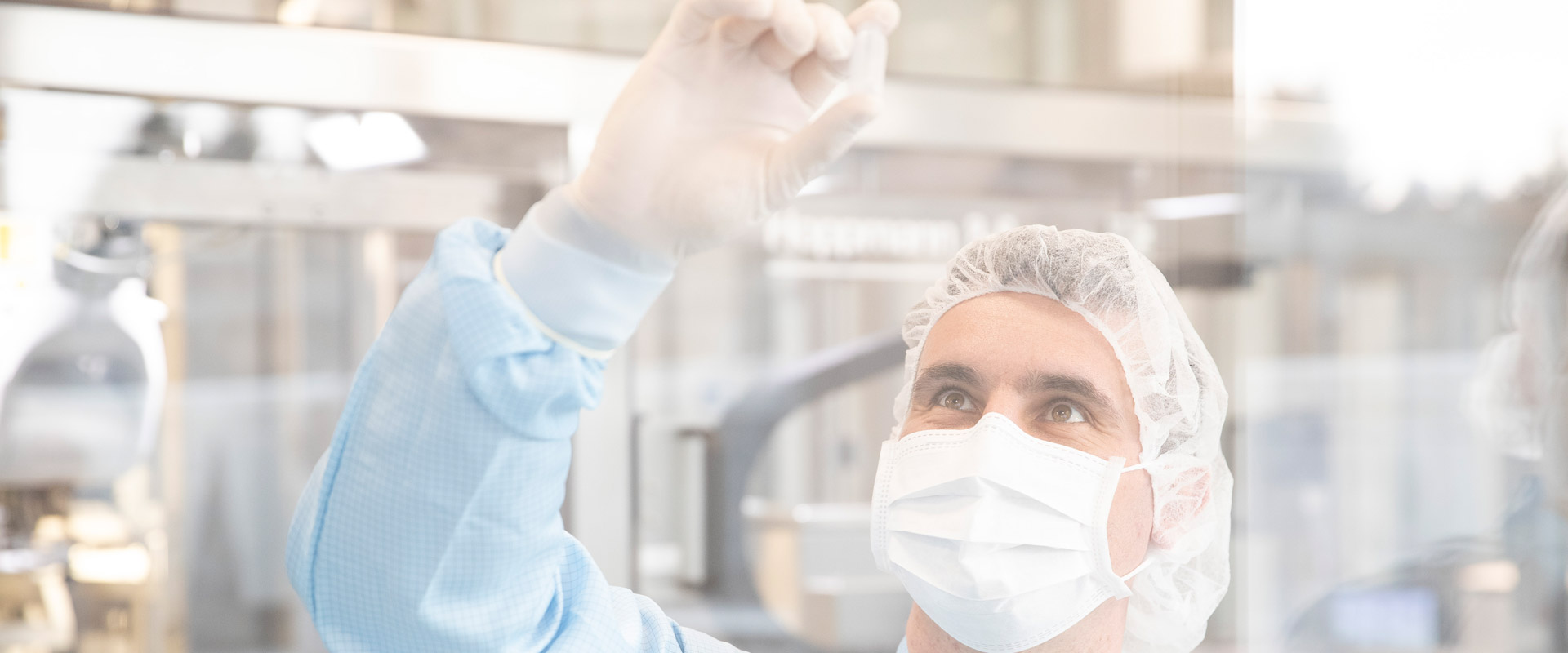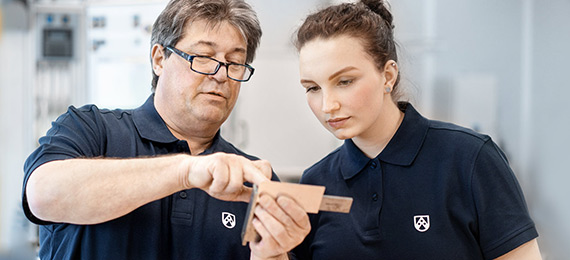Mannheim-based Group plans takeovers in the plastics segmentRöchling now free of debtDent in profits due to DeTeWeOutstanding position in plastics processingMannheim (Germany), June 9, 2005 – Fiscal year 2004 was characterized by increased concentration on the plastics business for the Röchling Group. Takeovers of companies involved in the processing of plastics are planned for the near future. The worldwide operating group of companies also focused increasingly on strengthening its financial capabilities and consolidating its subsidiary DeTeWe. This subsidiary suffered primarily from the price war in the telecommunications market and the weak state of the economy in Germany.
As part of its focus on plastics processing, Röchling sold off three companies from its Electronics division: the subsidiaries GMC and FHF, and this year the Francotyp-Postalia Group, market leader in Europe for franking and enveloping systems. The Electronics division now consists only of the DeTeWe Group and the BEA Group. Financial liabilities were further decreased, mainly by means of a reduction of the working capital. Over the past four years, these liabilities were reduced from EUR -238 million to EUR -35 million in 2004. As a result of the sale of Francotyp-Postalia the Röchling Group is now free of bank debt in net terms.
“We have thus provided the necessary leeway for our acquisitions in the plastics business“ explained Georg Duffner, chairman of the Management Board of the Röchling Group. “Röchling is now completing its transformation from a technology group positioned in many industries to a pure plastics specialist. Almost no other material can offer so many diverse properties or such a high level of innovation and growth potential. As a technology leader, we are already optimally positioned in this important future market.” The Engineering Plastics division increased its sales over the last three years by 30 percent on the basis of its own efforts, from EUR 290 million to EUR 378 million. Duffner adds: “No other material will increase in significance to the extent of plastics this century. This business segment provides us with excellent, lasting opportunities for profit."
Röchling Group acquires Seeber Belgium
In the course of the initial expansion in this business, the Röchling Group acquired the remaining 50% share in plastics manufacturer Seeber Belgium N.V. from joint venture partner Denderland Martin N.V. in May of this year. “Our aim is to expand the location further by supplying automobile manufacturers in Belgium, northern France and the UK.“ Customers of Seeber Belgium include Opel, Ford, Landrover and Volvo.
Growth in the plastics business was unable to fully make up for the decline in sales of the DeTeWe Group, however. Total sales of the Röchling Group therefore slipped by 8.3 percent to EUR 1,396 million. Adjusted for changes in the companies included in the consolidation and for differences in exchange rates, the decrease in sales amounted to 3 percent. Incoming orders decreased by 6.9 percent to EUR 1,367 million. In 2004, the Röchling Group achieved earnings before taxes and interest (EBIT) of EUR 36.3 million (EUR 49.6 million in 2003) and pre-tax earnings (EBT) of EUR 23.7 million (EUR 36.4 million in 2003). Losses from the telecommunications business and the resulting high non-recurrent expenditure pertaining to the social security scheme and from value adjustments were decisive in this case.
The number of employees decreased by 12.1 percent to 7,994 as a result of the disposals and reductions in personnel.
Engineering Plastics advance by 11 percent
The Engineering Plastics division, which came into existence from the Röchling Engineering Plastics Group (REP) and the Sustaplast Group, increased its sales by 11 percent to EUR 378 million. Incoming orders grew by 8 percent to EUR 379 million, while the orders on hand advanced from EUR 41 million to EUR 43 million. The number of employees increased by 6 percent to 1,944 due to the favorable business development. The subsidiaries of the division further expanded their market leadership. Increasing sales in the electronics business boosted sales with Durostone products (fiber optics-reinforced plastics/laminated densified wood). The Thermoplast business – panels, bead molding and profiles made of plastic, among other things – also continued to pick up. Both growing demand and an increase in selling prices in the second half of 2004 were the decisive factors.
Business for both REP and Sustaplast was marked by drastic price increases for raw materials. Among the most significant investments of the business segment was the expansion of production at the subsidiary REP by 3,200 square meters and two extrusion plants for Polyolefine at the head office in Haren. A similar plant was also put into operation in Singapore. In addition, the Röchling Engineering Plastics Group opened a logistics center there for delivery to all of Asia. Sustaplast started up a further logistics center in the USA. The Engineering Plastics division also expanded its production – with pipe and mold manufacture at Sustaplast/Lahnstein – in Germany as well as in the Czech Republic and in Shanghai, China. REP established a subsidiary there to produce thermoplastic semi-finished parts.
Automotive: a leading position in product and process development
In the Automotive section – which includes the Seeber Group and the Röchling Kaltwalzwerk cold-rolling plant – sales in 2004 slipped somewhat compared to the previous year. They decreased by 3.5 percent to EUR 585 million. Due to weaker demand, the number of employees was decreased by 7.5 percent to 3,375. The business of the Seeber Group is increasingly being defined by its leading position in product and process technology. Seeber-Röchling Automotive thus has numerous unique selling points, for example in the air ducts of its intake systems. The company has been collaborating with the Italian automotive subcontractor Cornaglia since last year. This collaboration is opening up the path into the after-sales market through the use of filters, as these products need to be replaced on a regular basis. At the same time it is one more step in the direction of module providers, clearly improving the competitive position. Added to this was the expansion of new technologies, such as in particular the development and production of super-light underbody panels made of LWRT (Low Weight Reinforced Thermoplastics).
While the Automotive division continued to press ahead with the construction of additional production sites in Eastern Europe in 2004, the ongoing negotiations in China regarding new orders were also looking very promising. As part of this process, the joint venture in Changchun received the follow-up order of the VW Bora model. In addition to VW, the most important customers of the company – namely BMW, DaimlerChrysler and Audi – have now also gained access to the Chinese market.
Electronics: a record year for Francotyp-Postalia
Sales in the Electronics division slipped by 22 percent to EUR 492 million due to the difficulties at DeTeWe. The number of employees declined by 25 percent to 2,821 employees. The Francotyp-Postalia Group can look back on the most successful business year in its corporate history. The drive behind the growth came primarily from the high demand for machinery with the new franking program known as “FrankIT“ by Deutsche Post.
Holdup of orders, tough competition and a sharp decline in prices characterized the telecommunications market in 2004. This serious crisis hit the DeTeWe Group especially hard. The decision was therefore made to initiate a major reconstruction of the company and in January 2005 a new corporate structure was introduced. As part of this reorganization, simplification of the product range and a significant reduction of personnel has been implemented.
Summary of 2004: Financial capabilities were strengthened and Engineering Plastics were promoted
Despite the dent in profits caused by DeTeWe, the Röchling Group was able to decisively strengthen its financial capabilities in fiscal year 2004. Francotyp-Postalia contributed to this with record results. The Automotive division profited from the development of new products and procedures, and the favorable position in the growth market of Engineering Plastics could be further expanded.
First quarter of 2005: Starting out with a headwind
The launch into fiscal year 2005 was marked by an unfavorable economic environment for the Röchling Group. This was expressed in the form of enormous price increases for raw materials and a clearly weaker automotive business, among other things. Sales fell by 16 percent (adjusted for consolidation effects by 10 percent) to EUR 298.3 million. The Engineering Plastics division recorded slight sales growth. The orientation of the Röchling Group to the plastics business is reflected in the increasing weight of these activities within the Group. The share of the plastic processing companies in total sales thus increased from 65 percent in the corresponding quarter the previous year to 71 percent in the first quarter of 2005. This share is expected to increase even further in the current fiscal year.
Outlook for 2005: Increase in earnings power despite great challenges
The lingering difficult situation in the automotive market and the enormous price increases in raw materials for plastics present the Röchling Group with some considerable challenges. The company is nevertheless confident that it will continue to move forward on its way to increasing earnings and completely reducing debts in fiscal year 2005 as well, and that it will accomplish this under its own power.
Further development of the Röchling Group
A long-term goal of the Röchling Group is to achieve a rate of return of at least five percent, with an equity ratio of more than 30 percent. Through a series of additional purchases, the Group intends to strongly expand its position in the plastics segment. “We see great potential for additional purchases in the plastics processing industry,” stated Duffner. “As an association of medium-sized companies with the common theme of plastics technology, we will continue to expand our leading position within Europe. At the same time, we want to grow in America and greatly expand in Asia.”
Röchling Group Company Portrait:
The Röchling Group, a worldwide operating technology group, focuses strongly on its three divisions Engineering Plastics, Automotive and Electronics.
The Engineering Plastics division consists of Röchling Engineering Plastics KG and the Sustaplast Group. Its diversified portfolio of high-performance products meets the industry’s growing demand for increasingly lighter materials that also guarantee extreme strength and optimum moldability. Further characteristics of the diversified portfolio’s materials are their maximum resistance to wear and abrasion, their superior gliding quality as well as outstanding insulation qualities.
Among the fields of expertise of the Automotive division – together with the Seeber Group and Röchling Kaltwalzwerk – is the manufacture of lightweight construction parts made from plastics for almost all well-known automotive manufacturers worldwide. Application areas are especially automobile interiors, engine compartments and underbodies. Moreover, the division provides cold rolled, phosphated and hardened steel strip primarily for engine parts.
The third division, Electronics , is comprised of the subsidiaries DeTeWe and BEA. The Group accordingly also holds a leading position in Europe with its comprehensive and innovative product palette for voice and data communications. Another business segment is the construction of industrial plants with a focus on electrical engineering and Automation.












